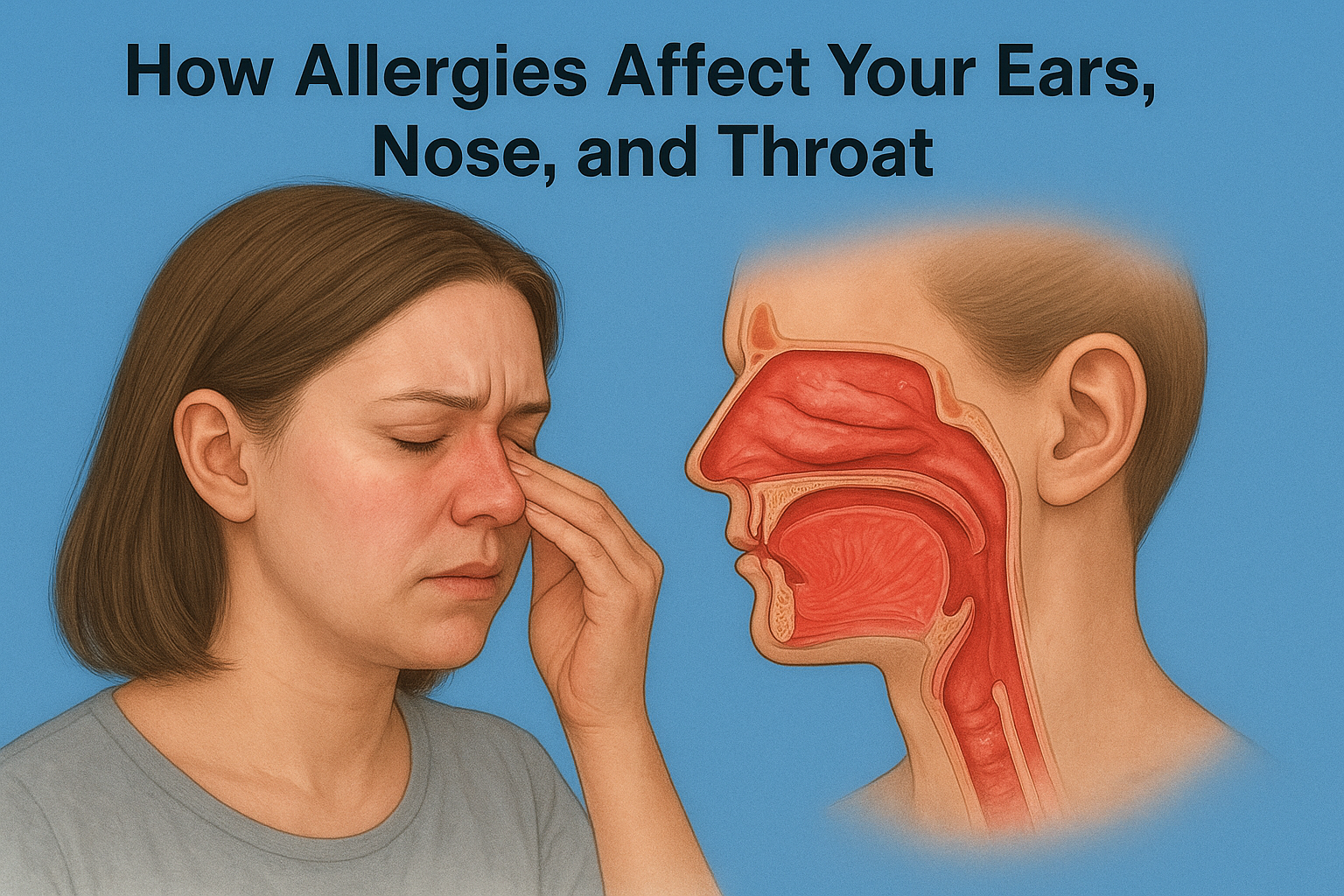

Allergies are one of the most common health conditions, affecting millions worldwide. Seasonal allergies, food sensitivities, or environmental triggers can significantly impact your daily life. While many people think allergies only cause sneezing or itchy eyes, they also have a direct effect on your ears, nose, and throat. Understanding these effects can help you find effective treatment and long-term relief.
The nose is the primary gateway for allergens like pollen, dust, or pet dander. When allergens enter, the immune system reacts by releasing histamines, leading to nasal congestion, runny nose, and sneezing. This condition, often called allergic rhinitis, can make breathing difficult and disturb sleep patterns. Persistent swelling in the nasal passages may also cause headaches and sinus pressure.
Your ears are connected to your nose and throat through the Eustachian tubes. When allergies cause nasal inflammation, fluid can build up in the middle ear, resulting in pressure, discomfort, or even temporary hearing loss. Some patients experience ear infections due to blocked drainage. Allergic reactions may also worsen tinnitus or create a sensation of fullness in the ears, making everyday activities uncomfortable.
Allergens don’t stop at your nose and ears. They also irritate the throat. Postnasal drip, caused by excess mucus draining from the nose, can lead to sore throat, constant throat clearing, or coughing. Some individuals experience laryngitis, which affects the voice and causes hoarseness. Chronic exposure to allergens may even trigger sleep apnea, making allergies more than just a seasonal nuisance.
Several factors contribute to ENT allergy symptoms, including:
Identifying and avoiding these triggers, combined with medical treatment, is essential for reducing ENT complications.
Treatment for allergies varies depending on severity. Over-the-counter antihistamines help reduce sneezing and congestion. Nasal sprays can minimize swelling in the nasal passages, while decongestants relieve pressure in the ears and sinuses. In severe cases, allergy shots or immunotherapy may be recommended to strengthen your body’s resistance against allergens. Consulting an ENT specialist is the best way to receive a personalized care plan.
If your allergies constantly interfere with your breathing, hearing, or sleeping, it may be time to seek professional help. Ignoring symptoms can lead to chronic sinus infections, recurring ear problems, or long-term throat irritation. At ATLAS MULTI-SPECIALTY CLINICS, our experts provide advanced allergy testing and targeted treatments to restore comfort and improve your quality of life.
Allergies affect more than just your eyes and nose—they can impact your ears, throat, and overall health. Early treatment prevents complications and restores daily comfort.
Visit ATLAS MULTI-SPECIALTY CLINICS for expert allergy care, advanced diagnostics, and tailored treatments to improve your ENT health.

Welcome to Atlas Multi Specialty Clinics, dedicated to prioritizing your health and well-being in the heart of Hyderabad’s Financial District, Telangana.
Atlas multi specialty clinics, The District, l202,
Financial District, Nanakramguda,
Hyderabad, Telangana 500032
atlasmultispecialityclinic@gmail.com
+91-7993366823
+91-9393000124
Copyright © Atlas Multi Specialty Clinics. All rights reserved.